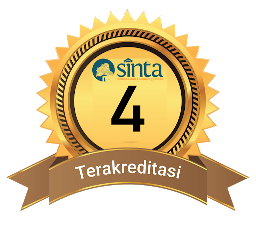The Influence of Project-Based Learning Combined with Self-Directed Learning Activities (UKBM) on Students’ Motivation and Learning Outcomes in Chemistry
DOI:
10.29303/cep.v7i2.6064Published:
2024-11-30Issue:
Vol. 7 No. 2 (2024): Edisi NovemberKeywords:
Project Based Learning Model, Self-Directed Learning Activities, Learning Motivation, Chemistry Learning OutcomesArticles
Downloads
How to Cite
Abstract
This research aims to describe the positive influence of the Project-Based Learning model combined with Self-Directed Learning Activity Units (UKBM) on students' motivation and learning outcomes in chemistry. The method used is quasi-experimental with a non-equivalent control group design. The research was conducted at SMAN 1 Gunungsari with a sample of 59 students from classes XI IPA 2 and IPA 4. The sampling technique used was simple random sampling, with XI IPA 4 as the experimental group and class XI IPA 2 as the control group. Data collection was done using a learning motivation questionnaire and pretest-posttest. Based on the results, the experimental group's average score was higher than the control group's. The hypothesis test results using the t-test yielded t-value of 4.2 > t-table 1.7 (for learning motivation) and t-value of 3.784 > t-table 1.671 (for learning outcomes). These results indicate that teaching using the Project-Based Learning model combined with Self-Directed Learning Activities (UKBM) has a positive impact compared to direct instruction in enhancing both motivation and learning outcomes.
References
Andeka, W., Darniyanti, Y., & Saputra, A., 2021. Analisis Faktor-Faktor yang Mempengaruhi Motivasi Belajar Siswa SDN 4 Sitiung. Jurnal Education and Counseling. e-ISSN:[27761223].
Andriani, R. R., 2019. Motivasi Belajar sebagai Determinan Hasil Belajar Siswa. Pendidikan Manajemen Perkantoran, 4(1), 82.
Angga, S. C., Nurwahidah I., & Asep, P., 2022. Komparasi Implementasi Kurikulum 2013 dan Kurikulum Merdeka di Sekolah Dasar. Jurnal Basicedu, 6(4), 5880.
Annas, K. M., 2019. Implementasi Bahan Ajar Modul Unit Kegiatan Belajar Mandiri (UKBM) dalam Pembelajaran Pendidikan Agama Islam di SMA Negeri 1 Sidoarjo. Skripsi. Universitas Islam Negeri Sunan Ampel, Surabaya.
Aristiani, Erika, D. & Supriyanto., 2021. Manajemen Program Sistem Kredit Semester (SKS) di SMA Negeri 1 Bojonegoro. Inspirasi Manajemen Pendidikan, 09(3), 553.
Dywan, A. A., & Airlanda, G. S., 2020. Efektivitas Model Pembelajaran Project Based Learning Berbasis STEM dan Tidak Berbasis STEM terhadap Kemampuan Berpikir Kritis Siswa. Jurnal Basicedu, 4(2), 345.
Elisabet., Relmasira, S.C., & Hardini, A.T.A., 2019. Meningkatkan Motivasi dan Hasil Belajar IPA dengan Menggunakan Model Pembelajaran Project Based Learning (PjBL), Journal of Education Ation Resesrch, 3(3), 289.
Herlina, V., 2019. Panduan Praktis Mengolah Data Kueisoner Menggunakan SPSS. Jakarta: Elex Media Komputindo.
Hermawan, I., 2019. Metodologi Penelitian Pendidikan ( Kualitatif, Kuantitatif dan Mixed Method. Kuningan: Hidayatul Quran.
Krajcik, J.S., Blumenfeld, P.C., Marx, R.W., & Soloway, E. (1999). Instructional, curricular, and technological supports for inquiry in science classrooms. In Minstrell, J., & Zee, E. V., (Eds.), Inquiry into inquiry science learning and teaching. Washington, DC: American Association for the Advancement of Science Press.
Pratama, A. F., 2022. Implementasi Program Sistem Kredit Semester di Sekolah Menengah Atas Negeri 1 Bantul. Spektrum Analisis Kebijakan Pendidikan, 11(4), 34.
Riduwan., 2013. Belajar Mudah Penelitian untuk Guru-Karyawan dan Peneliti Pemula. Bandung: Alfabeta.
Ruslika, D. A., & Ai. S. S., 2020. Pengaruh Penerapan UKBM terhadap Hasil Belajar Mata Pelajaran Bahasa Jepang Siswa SMA. Janaru Saja, 9(1), 46–51.
Safitri, A. O., Yunianti, V. D., & Rostika, D., 2022. Upaya Peningkatan Pendidikan Berkualitas di Indonesia: Analisis Pencapaian Sustainable Development Goals (SDGs). Jurnal Basicedu, 6(4), 7097.
Sari, R. T., & Angreni, S., 2018. Penerapan Model Pembelajaran Project Based Learning (PjBL) Upaya Peningkatan Kreativitas Mahasiswa. Jurnal Varidika, 30(1), 78–79.
Suhardi, D., 2022. Manajemen Kepemimpinan Pendidikan Kontenporer. Jakarta: Publica Indonesia Utama.
Sulfemi, W. B., 2018. Hubungan Motivasi dengan Hasil Belajar IPS di SMP Kabupaten Bogor. Jurnal Ilmiah Edutecno, 18(1), 8.
Trygu., 2020. Motivasi dalam Belajar Matematika. Sumatra: Guepedia
Tseng, K.H., Chang, C.C., Lou, S. J., & Chen, W.P. (2011). Attitudes toward science, technology, engineering, and mathematics (STEM) in a project-based learning (PjBL) environment. International Journal of Technology and Design Education, 23(1), 87-102.
Wijayanti, N., & Widodo, S.A., 2021. Studi Korelasi Motivasi Belajar terhadap Hasil Belajar Matematika Selama Daring. Journal of Instructional Matematic, 2(1), 6.
Author Biography
Nurul Azizah Bayani, Universitas Mataram
License
Copyright (c) 2024 Nurul Azizah Bayani, Yunita Arian Sani Anwar, Burhanuddin

This work is licensed under a Creative Commons Attribution-ShareAlike 4.0 International License.
Authors who publish with Chemistry Education Practice agree to the following terms:
- Authors retain copyright and grant the journal right of first publication with the work simultaneously licensed under a Creative Commons Attribution License 4.0 International License (CC-BY-SA License). This license allows authors to use all articles, data sets, graphics, and appendices in data mining applications, search engines, web sites, blogs, and other platforms by providing an appropriate reference. The journal allows the author(s) to hold the copyright without restrictions and will retain publishing rights without restrictions.
- Authors are able to enter into separate, additional contractual arrangements for the non-exclusive distribution of the journal's published version of the work (e.g., post it to an institutional repository or publish it in a book), with an acknowledgement of its initial publication in Chemistry Education Practice.
- Authors are permitted and encouraged to post their work online (e.g., in institutional repositories or on their website) prior to and during the submission process, as it can lead to productive exchanges, as well as earlier and greater citation of published work (See The Effect of Open Access).






